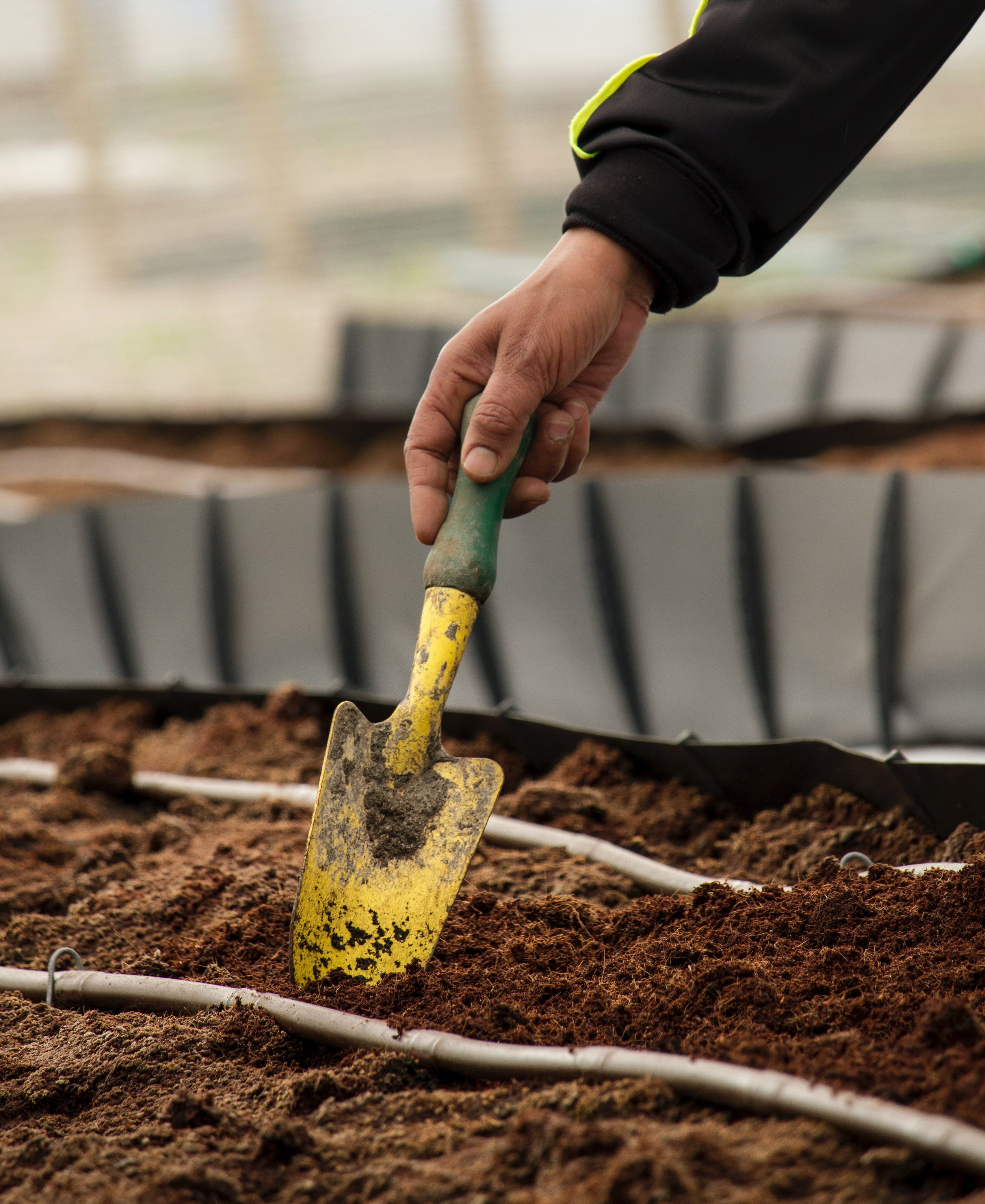Leveraging Collaboration and Digital Technology to Solve Africa's Food Challenges
“The advent and growth of technology have enabled the transformation of traditional membership groups into online communities and platforms like Nourishing Africa to flourish. According to GSMA Intelligence, a source of mobile industry insights, more than half of the population in Sub-Saharan Africa had access to 4G network by the end of 2020.” Nourishing Africa is building a vast community of young agri-food entrepreneurs and works hard to secure a stronger, more sustainable, and resilient Africa.
By Henry Dieto & Nourishing Africa
Photo: Ben Ostrower/Unsplash
Across the African continent, there are millions of small to medium scale agriculture and food businesses run by dynamic and resilient entrepreneurs, whom we call agripreneurs. According to a study by the Alliance for a Green Revolution in Africa (AGRA), these agripreneurs contribute to the production of over 80% of the food we consume on the continent. Despite this, they face many internal and external challenges in an ever-changing environment.
David Mbuta, 36, returned to his native Zambia in 2015 after many years in South Africa and Australia, where he studied Information Technology (IT). He saw technology as a pathway to solving his community’s challenges, ranging from poverty, to food insecurity, to limited technological know-how. To him, these challenges have prevented Africa from realising its full potential despite being revered as the most naturally-resourced continent globally.
It was no surprise that he chose self-employment to the alluring opportunities his undergraduate and graduate degrees could offer him in the developing country. His passion for e-commerce, food, agriculture and logistics led him to his first venture, Ubuntu Meal Delivery Services, an experimental project that began in a tiny guest house before growing to become one of the most popular and sought after on-demand meal delivery platforms in Zambia's capital, Lusaka.
Photo: David Mbuta (L) receiving agricultural produce for cold storage and transportation from a Zambian farmer. Source: David Mbuta
David would later establish Cold Storage Zambia to help smallholder farmers cut down their post-harvest losses. The agribusiness offers affordable solar-powered pay-as-you-go cold storage and transportation services.
"We realised farmers incurred many losses when transporting their produce from the farm. Financial constraints meant they had no choice other than to use transport services that operated like silos," he says.
David's success has not come easy. His first business, Ubuntu Meal Delivery Services, almost collapsed in its formative years because of limited finances and his lack of adequate skills to run the business. In establishing Cold Storage Zambia in 2020, David joined farmer groups and communities, which he credits as central to the survival of his new venture.
Another critical community to Africa's agriculture and food ecosystem is Nourishing Africa, a digital knowledge and membership hub focused on supporting African agri-food entrepreneurs to scale their businesses through collaborative models, peer-to-peer support, and provision of critical resources and tools and opportunities. Through the platform, agripreneurs like David access funding and capacity building opportunities, essential data and reports, information about events, e-learning resources, media showcase opportunities, and mentorship. The Hub also serves as a platform for them to accelerate their work, connect, and celebrate their successes on the continent.
The advent and growth of technology have enabled the transformation of traditional membership groups into online communities and platforms like Nourishing Africa to flourish. According to GSMA Intelligence, a source of mobile industry insights, more than half of the population in Sub-Saharan Africa had access to 4G network by the end of 2020; the very same year Nourishing Africa was founded, leveraging the power of technology to break geographical barriers that had previously prevented African entrepreneurs from working together towards the continent's unmet needs.
Photo: The Nourishing Africa hub enables African agripreneurs to connect and access the latest funding and capacity building opportunities, among other resources, to scale their businesses. Source: Nourishing Africa
Ify Umunna, Co-CEO of Nourishing Africa, explains how communities are vital to the lives of SMEs in Africa. "Communities like Nourishing Africa are knowledge hubs, markets, funding sources, and the go-to places for any SME that wants to scale. They are critical to many aspects of growing a business in today's world. Failing to subscribe to a group where you can learn from peers exposes you to avoidable failures and blocks you from so many rewarding opportunities," she says.
Ify explains the importance of young entrepreneurs like David, who are in the agricultural sector, working towards scaling their businesses to solve Africa's challenges on a larger scale. "We must encourage African youth to see Africa's food challenges as opportunities. That's the only way to build sustainable, profitable and innovative businesses that have the potential to see us being food secure. At the same time, we must ensure that this sector is attractive to young people who thrive in change and innovation, which are not looking to do things the same way their forefathers did."
Ify's sentiments on unlocking Africa's potential and David's story on the power of a digital community point to the continent's dire need to use innovations to spur socio-economic development and accelerate its journey toward achieving the United Nation's Sustainable Development Goals (SDGs). The continent's push for youth inclusion in critical areas such as agriculture and private and public sector support for new innovations spearheaded by these young people are positive signs of a stronger, resilient, and more sustainable Africa.
Photo: Anaya Katlego/Unsplash




